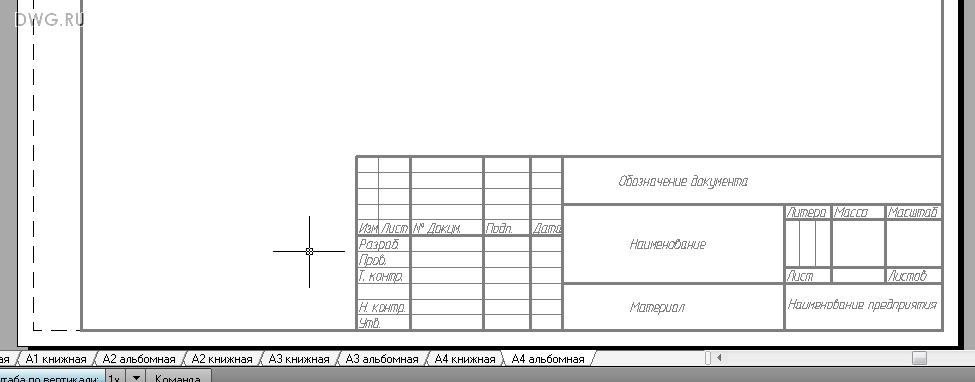Ramka Dlya Chertezha A1 Avtokad

'The research for this book was prompted by a series of media reports and research papers that in recent years claimed that Bosnia was, and still is, a staging area and safe haven for Islamic terrorists traveling between the Middle East and Europe,' says Azinovic. 'My book arose out of a desire to investigate the validity of these claims.' Azinovic says he decided to focus on several key questions: • What is Al-Qaeda and the ideology behind it? • Does Al-Qaeda enjoy any support in Bosnia? • If so, how did it get there? • Are Bosnian Muslims being recruited to fight its cause? He says his research established that, as of 1992, Bosnia had, indeed, become a meeting point for members of militant groups who had arrived either from training camps in Afghanistan or from Western Europe, where they had been recruited in mosques and Islamic centers.
Fanny Aronsen was a Swedish textile and product designer who created a unique and influential body of work. She made luxurious and sophisticated contemporary fabrics, characterised by sumptuous colours and intriguing tactile materials. Highsmith, Patricia Patricia Highsmith. Open Media Ltd. Known for her impish depictions of violence and amorality in such novels as Strangers on a Train (1950) and The Talented Mr. Ripley (1955), Highsmith took a [somewhat] lighter touch in The Price of Salt (1952), a lesbian romance.
People celebrating Maulud claims the face of Sheik Inyass appeared on surface of the light and they climbed the light pole to touch Inyass face. This is not Islam. Anybody who dies in this kind of idolatrous sect will surely regret ever coming to this world.' According to Adebimpe who shared the on her Facebook page, condemning the act, she wrote; 'They think a dead man (Sheikh Ibrahim Niyas) has appeared on the light bulb, So they compete in climbing to touch his face supposedly to get blessing from him- a man who died several years ago fa. This is a pure and clear act of Idolatry. Obrazec napisaniya pisjma drugu na russkom yazike.
These militants felt that genocide was taking place in Bosnia and that a new jihad was required. Once they reached Bosnia, they became mujahedin and adopted new identities. Mujahedin Remain. 'In short, [Bosnia-Herzegovina] is an ideal breeding ground for militant ideologies, while Wahhabism provides extreme, yet simple, answers to almost every challenge that arises from Bosnia's postwar reality.'

Max 64 bit number. -- Vlado Azinovic Azinovic says the number of mujahedin who fought in Bosnia from 1992 to 1995 is estimated at 3,000 to 4,000. Initially, they were not under the control of the Bosnian military but fought beside Bosnian Muslims, or Bosniaks. In September 1993, however, the mujahedin were integrated into the Bosnian Army’s Third Corps under the name El-Mujahedin Unit. A few hundred mujahedin remained in Bosnia after the war, Azinovic says. A few dozen still remain. He says they have enjoyed protection and support from the highest ranks of the Bosniak political and intelligence establishment.
Some of them are believed to have links to Al-Qaeda. The arrival of the mujahedin, he says, introduced two important factors into Bosnia's security and social landscape. One was short-term: the physical presence of people trained to commit terrorist acts.
The other factor was long-term. Along with the mujahedin came a rather narrow, puritanical, and confrontational interpretation of Islam, commonly known as Wahhabism.
From the outset, Wahhabism caused tensions in traditional Bosnian-Muslim society, which has always been religiously moderate. These tensions have escalated in recent months, Azinovic says, and have led to a struggle between 'traditionalists' and Wahhabis for the control of mosques and Islamic centers. Source Of Instability 'My book maintains that the presence of Wahhabism and of the remaining mujahedin do not qualify Bosnia as a particular threat to international security,' Azinovic says. 'More of a threat, I believe, is the fact that Bosnia is becoming a failed state. The Dayton peace agreement may have ended the armed conflict, but through the establishment of the Serb Republic (Republika Srpska), it incorporated, rather than resolved, the fundamental dispute over which the war was originally fought -- namely, whether Bosnia is a united or divided country.' Vlado Azinovic (RFE/RL) He says this dichotomy provides a permanent source of instability.